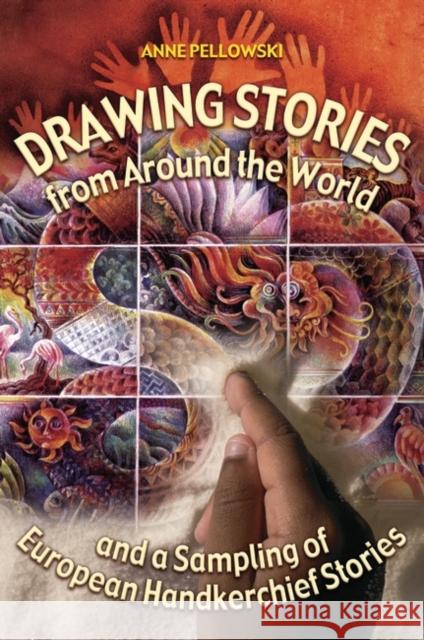Drawing Stories from Around the World and a Sampling of European Handkerchief Stories » książka
Drawing Stories from Around the World and a Sampling of European Handkerchief Stories
ISBN-13: 9781591582229 / Angielski / Miękka / 2005 / 272 str.
Drawing a picture while telling a story is a tradition that can be found in cultures around the world--perhaps dating back to early cave paintings. No one knows when or where this unique form of storytelling originated, but for generations, drawing stories have delighted and informed listeners--and they continue to fascinate audiences today. Renowned storyteller Anne Pellowski has traveled the world, collecting drawing stories from such diverse countries as Indonesia, Korea, Romania, Germany, Sweden, and Japan. Here she presents more than 30 ready-to-tell tales, along with step-by-step directions for the ingenious illustrations that accompany them, and tips for engaging your audience in further learning. An added feature is the inclusion of 5 delightful handkerchief (hanky panky) stories, which originated in Europe in the 19th century. A valuable treasury for educators, storytellers, and folklorists.
Drawing a picture while telling a story is a tradition that can be found in cultures around the world--perhaps dating back to early cave paintings. No one knows when and where this unique form of storytelling originated, but for generations, drawing stories have delighted and informed listeners--and they continue to fascinate audiences today. Renowned storyteller Anne Pellowski has traveled the world, collecting drawing stories from such diverse countries as Indonesia, Korea, Romania, Germany, Sweden and Japan. Here she presents more than 30 ready-to-tell tales, along with step-by-step directions for the ingenious illustrations that accompany them, and tips for engaging your audience in further learning. You'll find well-known tales, such as The Black Cat, which was made famous by Lewis Carroll, as well as many drawing stories that have never before appeared in print, including a number of Japanese ekaki-uta and Australian Aboriginal sand stories. An added feature is the inclusion of 5 delightful handkerchief (hanky panky) stories, which originated in Europe in the 19th century. Historical background of the tales, notes on sources, and a bibliography complete the work. Guaranteed to enchant listeners young and old, these simple tales especially appeal to today's visual learners, and can easily be incorporated into curriculum studies and into the storyteller's repertoire. A valuable treasury for educators, storytellers, and folklorists.











